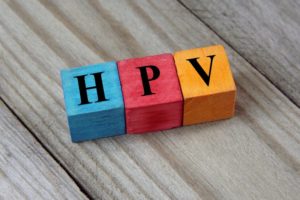
Each year, more and more people die as a result of oral cancer. Once the disease advances and spreads, there is very little, if anything at all, that can be done to treat it. Killing more people than cervical, testicular, kidney, liver cancer, or Hodgkin’s lymphoma, the survival rate of those who are diagnosed and who will be alive in 5 years is around 50%. Risky lifestyle behaviors are to blame for many of the cases, including smoking, heavy alcohol consumption, and even HPV infection. Since April is Oral Cancer Awareness Month, let’s find out more about HPV and its connection to oral cancer by reading what a dentist in Hamden has to say.
What is HPV?
According to the Oral Cancer Foundation, the human papilloma virus (HPV) is a double-stranded DNA virus that infects the cells that are covered by your skin and/or mucous membrane. When thinking about its connection to oral cancer, these areas can include the interior of your mouth, throat, tongue, and tonsils.
HPV is transmitted through sexual contact, both conventional and oral; however, researchers are still determining how or if it can be passed in other ways. HPV contains 200 strains and is by far one of the most common sexually transmitted diseases in the United States.
Some other basic facts about HPV that are useful to know include:
- An estimated 80% of Americans will contract HPV at some point in their life (According to the CDC)
- 99% of those infected will clear up without any sign of the virus being present
- The body’s immune system can get rid of HPV in most cases, often leaving the individual never knowing they had it because of the lack of symptoms
How Is It Connected to Oral Cancer?
Oropharyngeal cancer, also known as throat cancer, is often caused by HPV. Of the 200 HPV strains, only 9 can cause cancer, and only one is attributed to throat cancer (HPV16). It can be much more difficult to diagnose someone with throat cancer that is caused by HPV simply because the symptoms are not always obvious.
Although there are tests that can determine if someone has an oral HPV infection, they do not indicate if that individual will develop oral/throat cancer. The best method of screening for HPV-related cancer is to have your dentist perform a visual and tactile exam. In addition to looking and feeling of your mouth, throat, and neck, your dentist may ask you questions about any symptoms you may be experiencing that are not visible.
What Are Some HPV Risk Factors and Symptoms?
To determine if you might be at risk for developing HPV, here are a few things to watch for:
- If you are sexually active and have had multiple partners. The greater the number of partners, the more likely you are to develop HPV.
- If you have a weakened immune system.
Whether you are at a high risk of developing HPV, it is beneficial to know what symptoms are tied to oral cancer:
- Persistent sore throat
- Mouth or lips that are numb
- A lump or hard spot
- Swollen and painful tonsil
- Red, white, or black discoloration on the soft tissues
While most cases of HPV clear on their own, it’s important not to take this virus too lightly. When visiting with your dentist, make sure to discuss your overall health and if you are exhibiting any signs that could be related to oral and/or throat cancer.
About the Practice
At D’Andrea and Pantera, DMD, we believe in the power of preventative dentistry. Not only do we enjoy seeing your face each time you come in for a cleaning, but it gives us the opportunity to keep your overall health in check with oral cancer screenings. Our promise to provide the highest quality dental care is evident by our warm and welcoming dental team. To learn more about us and the services we offer, visit our website or call (203) 288-0951.






